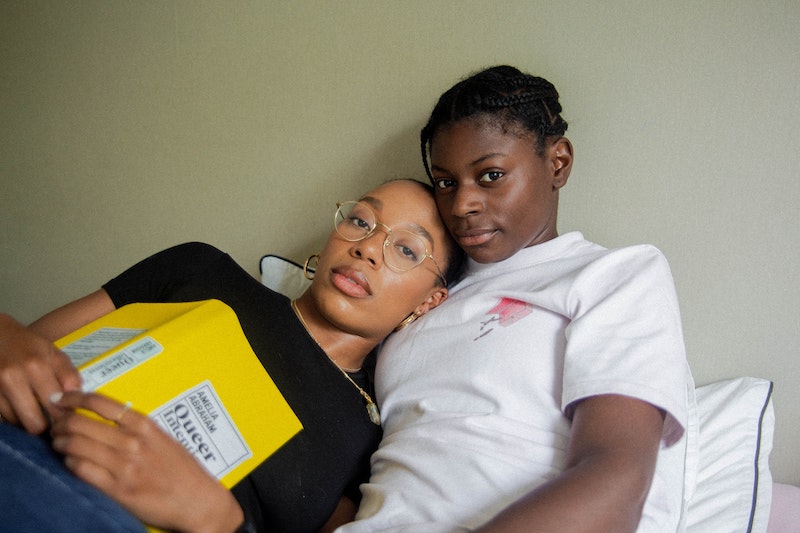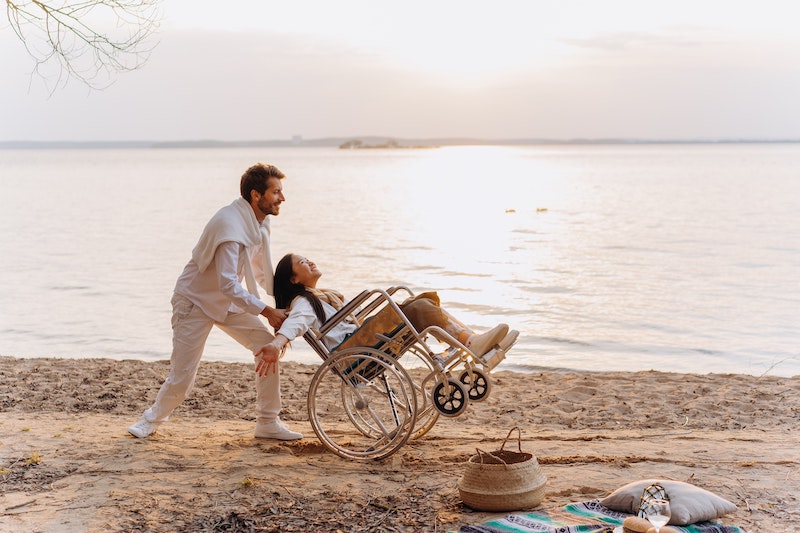We all desire pleasure and depending on your physical ability, you might consider pleasure as more or less accessible to you. When sexual pleasure feels out of reach because of a physical hindrance, it can be deflating to your confidence. When you need to ask for adjustments in your sex life, remember this: It is 100% normal for anyone and everyone to need accommodations during sex.
Whether it is about physical or emotional comfort, making adjustments for each other is part of a healthy relationship. In part #1 of this blog, we will explore sex with physical disabilities. In part #2 , we will dive more into sex with neurodiversities. Pleasure can be made accessible to everyone with the right accommodations!
Be Authentically You
A physical disability doesn’t mean you’re not a sexual being. If sexual pleasure is something you desire, allow it to become a part of your authentic self. Everyone deserves a healthy and pleasurable sex life. Perhaps you’re getting used to how different your body looks and feels because of an injury, a surgery, or an illness. Significant changes in your ability, mobility, and appearance can be hard to work through on your own. Please reach out if you would like help and support through this process. You are worthy of a satisfying sex life. You deserve pleasure.
Get in Touch with Your Body
Learn what feels good to your body. Everybody and every body is different. Notice if there are parts of your body that feel particularly good to touch and share that with your partner. If there are areas that feel too sensitive, uncomfortable, or painful; notice and share that too. Depending on your disability, your doctor may also have some insights or recommendations about what might be helpful or avoidable.

Pleasure-Focused Sex
I encourage all clients to focus on the experience itself, the “being in the moment.” Intimacy is so much more than just the physical act of sex. It’s conscious touch, emotional closeness, and caring communication. This includes folks with a limited physical ability; pleasure is for everyone. When we feel good about our sexuality we are also more likely to have higher levels of self-esteem, and that goes for anyone.
Communicate Your Needs
Sex depicted on TV is not representative of our average bedroom. It’s linear, glamorized and misleading… that seemingly spontaneous sex where it just automatically feels good without needing to communicate at all and there are never any common interruptions. The reality is that your partner cannot read your mind. They will need your input. Here are some pointers on asking for what you want and need:
- Give positive feedback about what feels good! For example, “I love how it feels when you ___.”
- Make requests rather than telling your partner what they are doing wrong! For example, “ It feels so good to be touched, and….could you slow down a little”
- Use statements about your feelings to avoid unintentionally shaming or blaming your partner. For example, “I have a pain in my ___ when you do ___.”
- Give a suggestion for what would feel better! “Let’s avoid ___ and do ___ instead!”
- Acknowledge with your partner that needs can change daily and encourage them to check in with you regularly.
- Ask them what you can change or do more of to accommodate their needs too.T
This can be an empowering and ongoing conversation for both of you. Even if you don’t have a disability, we all have a sense of what feels best for our bodies. Initiate a two way conversation with love and honesty.

Sex Positions
Mobility, strength, and flexibility can be challenging when you have physical disabilities. Exploring different positions can give you better access to what feels good. Approach sex with curiousity and make as many adjustments as you need to enhance your experience. If you feel stuck, here’s a link to a guide for various sex positions that work better with all kinds of disabilities. Look through them and see if any of them could be helpful for you.
Research shows that having a sexual partner who is open to an expanded menu of sexuality and is willing to explore a variety of positions and techniques, is more important than physical ability.
Taylor Carmen, who uses a wheelchair, writes frankly about her sexual experiences and offers great advice for those working with physical disability in her article, Ten Things Google Won’t Tell You About Disabled Sex. There’s a learning curve, for sure, and being patient, sensitive and creative with your circumstances can bring about a sexual experience that is uniquely yours.
Work with a Coach
Working with a compassionate sex coach who is tuned in to your particular needs can be a helpful and supportive way to explore your sexuality. For people with disabilities (and everyone else!), discovering your sexuality can bring up a lot of questions. What if I’m inexperienced? How can I work with my body? How can I feel confident as a sexual being? How can I ask for what I need? Will others see me as sexual?
There are a variety of different ways to work with whatever place you’re in. For some clients certified sexological bodywork, a hands-on, one-way touch modality that is sensitive to your particular challenges and can be extremely helpful in learning how your body responds to sensation and touch, how to receive, and what’s comfortable for you.
Contact me here if you are curious about how sex coaching could help you. Remember that a flourishing sexlife can be made accessible through education and advocacy no matter your ability.

